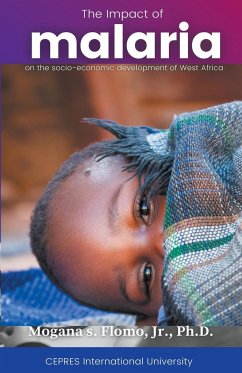Malaria remains a formidable global health challenge, particularly in West Africa, where it continues to impede socio-economic development. This book examines the impact of malaria on the region, focusing on prevalence, health consequences, productivity losses, and social implications. It identifies the most affected countries and regions, emphasizing the factors that contribute to high transmission rates. The book investigates the health consequences of malaria, specifically its effect on mortality rates among children and pregnant women, as well as the long-term implications of recurring infections on individual health and well-being. Furthermore, it explores the economic ramifications, including productivity losses, agricultural and food security concerns, healthcare costs, and indirect expenses related to education and tourism. The social consequences of malaria, such as stigma and discrimination, are discussed, along with an examination of the disease's gender dimensions. The book provides an overview of existing malaria control interventions, analyzes their challenges and limitations, and investigates innovative strategies and technologies for malaria control in the region. Additionally, it explores international efforts, highlighting key initiatives such as the Roll Back Malaria Partnership and the Global Fund to Fight AIDS, Tuberculosis, and Malaria. The importance of collaboration between governments, NGOs, and the private sector is underscored. The book identifies countries or regions that have made significant progress in malaria control and investigates the factors contributing to their success. Finally, it draws lessons learned and presents policy recommendations for improving malaria control strategies. The book advocates for increased investment in research, healthcare infrastructure, and capacity building to combat malaria effectively and promote sustainable socio-economic development in West Africa.
Hinweis: Dieser Artikel kann nur an eine deutsche Lieferadresse ausgeliefert werden.
Hinweis: Dieser Artikel kann nur an eine deutsche Lieferadresse ausgeliefert werden.








